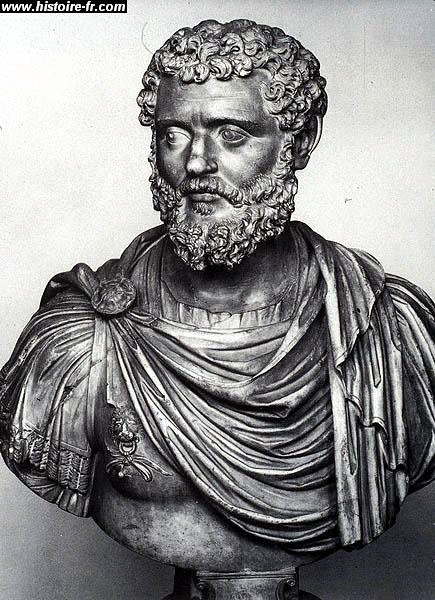But in the year 193 A.D one chap, Marcus Didius Severus Julianus Augustus (let’s call him Didi to save words), attempted to break the mold, he went against the grain by choosing to buy the imperial throne and the empire that came with it.
Now, Didi was from a prominent family and had a high-flying career that befitted a man of his status. He followed the cursus honorum – a traditional career path for any aspiring politician that gave all the experience necessary for a government career. He had worked both at home and abroad, in administrative and combat roles; in short he was a viable candidate for emperor.
So how do you buy the throne?
Step one – find out who owns it
Nearly a century before Didi’s purchase, the emperor Claudius had worked out just who actually owned the throne. The Praetorian Guard. These men based just outside Rome were the only major military force for hundreds, if not thousands of miles around. In principle they protected the emperors life but they were also known to take it if it benefitted them. When power changed hands between emperors it was the Guard who had the final say, and by this period they received a donation from each emperor. They were wealthy, and their commanders were hugely influential.
Step two – wait for an opportunity to purchase it
Didi’s predecessor, Pertinax, was assassinated by the Praetorian Guard. The reasons vary but a tightening of discipline and a failure to provide them with a promised sum of pay are both possibilities. A force of them stormed the palace one night and took his life.
Afterwards the Praetorian Guard proclaimed that the throne would be sold to the man who paid the highest price. This was Didi’s opportunity.
Step three – attend the auction
Naturally there would be some competition for the position of emperor, ruling the world was a popular job back then and the entry requirements were (financially) extraordinary. Titus Flavius Sulpicianus was the first to attend the action at the Guard camp. He was Pertinax’s father-in-law and Prefect of the City so he had a strong claim.
Meanwhile Didi was chillaxing at a banquet when his family rush in and tell him what is happening. He dashes to the senate-house to be told that the auction is taking place at the Guard camp. So there he dashed.
Step four – bid big
Sulpicianus was already close to clinching the deal and Didi couldn’t get into the camp to make his bid. So he stood beyond the wall and made various promises to win the Guard over. Ancient sources offer us various claims but the financial one is the most important, 25,000 sesterces to every Guardsman!
This is a difficult bid to believe, there were 9,000 guardsmen, so that makes a whopping 225 million sesterces!
Attempts to convert values like that into modern terms don’t work*, some rough calculations suggest that Didi could have purchased forty-five Italian estates (so basically most of Italy) with that amount of cash. Did he even have that much money? We will never know, but upon his accession to the throne he did debase the currency by 6.5%, shaving a nice 14 million in value off of his still unpaid bid, despite the public outcry about it.
Step five - prepare for civil war
So with all four of these steps completed, you too can own Europe (and a bit of Africa/Asia), however you won’t get to have it for long, probably only a few months, as Didi unfortunately found out.
 |
Step five - prepare for civil war
So with all four of these steps completed, you too can own Europe (and a bit of Africa/Asia), however you won’t get to have it for long, probably only a few months, as Didi unfortunately found out.
You see, he and Sulpicianus weren’t the only ones who wanted Rome; they were just (un)lucky ones who turned up in time. Out in the provinces, on the frontier edges of the empire were generals with armies at their back. Upon hearing that they had missed out on the auction, they were decidedly angry and one in particular, Septimus Severus, decided to march on Rome from his post in Pannonia (modern day Hungary). Didi rushed to train his new army, but they were supposedly lazy and disinterested, their position was secure regardless. Didi became desperate and attempted to negotiate with Severus, this failed and soon the Guards and Senate abandoned him in favour of the new guy with the army. Didi was killed by a soldier in the third month of his reign.
I think we can consider Didius Julianus to be an epic fail of ancient Rome and a lesson to all of us who have ever thought about buying our way into power. Now if you’ll excuse me, I need to do some revision that is actually relevant.
*For reference, by comparing it as a percentage of estimated GDP, Roman and UK, we are looking at a modern equivalent of £45 billion.

No comments:
Post a Comment